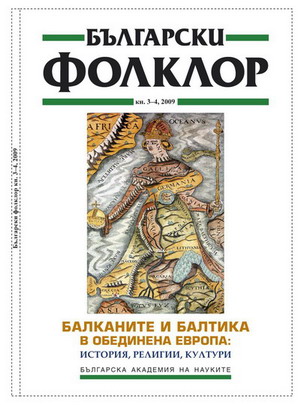„Меден глиган”, „бронзов войник”, „каменен воин”
“Bronze Boar,” “Bronze Soldier,” “Stone Soldier”
Author(s): Nikolay VukovSubject(s): Anthropology
Published by: Институт за етнология и фолклористика с Етнографски музей при БАН
Summary/Abstract: The focus of the article falls on the monument of the Soviet army in Tallinn (known as “the Bronze soldier”), which turned into an object of vehement debates and demonstrations in the spring of 2007 after the decision of the Estonian government for its dismantlement and removal to another part of the city. The text outlines the main problems related to the monument’s replacement, the key points in the debates about its preservation or destruction, as well as the role of the issue of historical memory in the discussions about the fate of such objects. Attention is paid to the public disturbances of monument’s dismantlement and to their resonance in Bulgarian context – mainly through the reactions of participants in Internet forums, commenting the dramatic events in Estonia at the end of April and early May 2007. Tracing parallels between “the Bronze soldier” in Tallinn and the Alyosha monument to the Soviet army in Plovdiv, the article outlines the major overtones in conceptualizing monuments of the communist past in Bulgaria and Estonia – their place in the symbolic struggle with the heritage of this past, their embeddedness in narratives of national history and national memory, and their role as primary examples for the political dimensions of public memory over the last two decades.
Journal: Български фолклор
- Issue Year: XXXV/2009
- Issue No: 3-4
- Page Range: 058-065
- Page Count: 8
- Language: Bulgarian
- Content File-PDF

